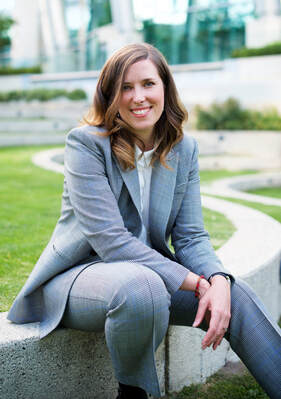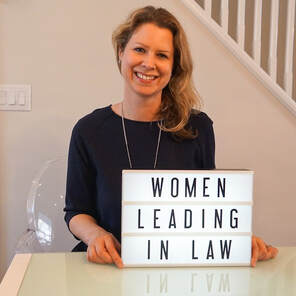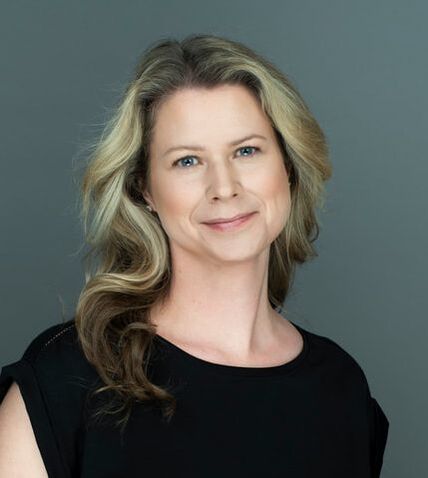 We head out to Vancouver for our next leading lawyer: meet Frances Mahon! When I was told by the person who recommended Frances for this profile that she had done a "bajillion" murder trials I was both impressed and a little worried about Canada's murder rates. I have now been told it might not be a "bajillion" murder trials, but close :) Read on to find out more about France's practice: 1. Tell me a little about your practice or business. Mahon & Company is not your typical law firm. We represent people facing serious criminal charges, provide assistance to refugees and other newcomers, and we engage in advocacy and law reform efforts on behalf of individuals and non-profit organizations, with a particular focus on sex worker rights and issues impacting the LGBTQ2S community. In many cases, some or all of these practice areas will overlap (e.g. someone facing criminal charges and immigration consequences) and we bring value to our clients by taking a holistic approach to these intersecting issues. 2. Why did you go to law school? I was an artist before I became a lawyer (still am). Some people think this is an unusual path, but to me it makes perfect sense, since my art practice has long been centred around social justice issues, and there is no question that a creative approach to problem-solving is a valuable skill for lawyers. Right before I applied to law school, I had been working on a documentary with a LGBTQ refugee group in Toronto. Listening to the stories of the brave folks who had been through hell and back made me want to take my advocacy to the next level. I applied to Osgoode Hall Law School, and much to my surprise the school decided that a weirdo artist like me had the potential to be a lawyer. 3. How did you get to where you are today? Design? Chance? Both? A little of both. Although I wanted to be a refugee lawyer when I initially applied to law school, by chance I was enrolled in Professor Alan Young’s intro criminal law class and I quickly became obsessed with criminal law and forged one of the most important relationships of my career. I owe a lot of my initial success to Prof. Young’s mentorship, and criminal defence work is the core of my practice to this day (although I did eventually circle back to refugee work when the opportunity arose). Throughout the rest of law school, I worked as his RA and got to help out with Bedford v. Canada, the Innocence Project, and many of his other initiatives. The best things that Prof. Young taught me were (1) you can be a lawyer and still be a pretty weird and creative person, and (2) you can make a career out of your passion for law reform and social change. When Bedford went to the Supreme Court of Canada, Marlys Edwardh joined the legal team alongside Prof. Young. We ended up spending quite a bit of time together as the team prepared for the SCC, and she eventually offered me an articling position in the criminal law group at Goldblatt Partners LLP in Toronto. I will never forget the years I spent working with her and the team at GP LLP. I got to work on interesting cases with some amazing lawyers, and Marlys taught me how to work hard, think deeply about the law, and to really connect with clients and bring their story to the court. Her intellect and compassion is legendary – she truly is one of the giants of the law and I love her dearly. I moved to Vancouver in 2016 and about 6 months later decided to start my own firm. This was a HUGE leap of faith but one that has really paid off. Three years later, I am working with an extraordinary team of people in a beautiful office (with the coveted north view) in downtown Vancouver. We do work we are really passionate about, get to help our communities, and we have fun while we do it. I’ve somehow managed to create the law firm of my dreams and I can’t imagine doing anything else now. 4. What is your most significant achievement? What are you proud of? Aside from creating the law firm of my dreams? Without a doubt it was representing groups of LGBTQ2S lawyers and law students as intervenors in the Supreme Court of Canada in Trinity Western University v. the Law Society of Upper Canada. I had been to the SCC before, but this was the first time I gave oral submissions (easily the most terrifying 5 minutes of my life). I am so proud that our contribution helped ensure that LGBTQ2S law students can seek out law school positions without the identity-based barrier that TWU’s law school would have imposed. 5. What are some key challenges, and more importantly, opportunities for women in law? One challenge (which is presented by your question) is the binary divide between “female” and “male” lawyers and the assumption that it is only cisgender women striving for recognition and equality. I have a number of trans and non-binary colleagues and they are largely erased from these conversations. For example, the challenges my non-binary colleagues face are numerous: where do I get changed into my robes at the courthouse? where do I go to the bathroom, when there are only “men’s” and “women’s” washrooms? how can I get the Court to recognize my name and pronouns without pissing off the judge? There are countless everyday barriers that are largely unnoticed outside (and even inside) the LGBTQ2S community. Fortunately this is changing, albeit only at the glacial pace of the law. Last year, Nicole Nussbaum, Frank Durnford and I conducted a training session on LGBTQ2S issues for Federal Court judges (through the CBA’s National SOGIC section, where I act as 1st Vice Chair) and the response was incredibly positive. One very senior judge (who shall remain unnamed), after learning about the barriers presented by gendered washrooms, said he wanted to “take a sledgehammer” to the bathroom walls in the courthouse and start rebuilding, which is possibly the coolest thing I’ve ever heard a judge say. We are now looking to expand this training to judges across Canada. I like to believe that people can change, when given the necessary tools, and there are lots of opportunities out there to help your community and be an agent of change if you have the energy and desire to do it. 6. What advice would you give a woman starting her legal career? Make friends, and keep them. A support network is crucial to any lawyer. I remember being told at Osgoode that the relationships we forged in law school would last throughout our careers, and it was the best piece of advice I have ever received. In addition to the benefits of friendship, you will get referrals, advice, a shoulder to cry on, someone who gets both the lawyer side of you and the you-you, and so many other things. One of my closest friends is someone I met on the first day of law school and I honestly don’t know how I would have survived this past decade without her. Be a friend, not a jerk! -------------------------------------------------------------------------- Thank you for taking the time to provide these thoughtful and helpful answers! I started this blog series because I was tired of hearing about women leaving law and wanted to hear about women leading in law. The "Women Leading in Law" series focuses on good news stories and highlights amazing women succeeding in the legal profession. Each post includes the profiled lawyer's answers to six questions. Prepare to be inspired! ICYMI - previous posts profiled the following amazing lawyers: Sarah Molyneaux, Richa Sandill, Vivene Salmon, Kim Whaley, Alisia Grenville, Frances Wood, Maggie Wente, Anita Szigeti, Neha Chugh, Christy Allen & Nancy Houle, Suzie Seo, Kim Gale, Alexi Wood, Melissa McBain, Erin Best, Gillian Hnatiw, Melanie Sharman Rowand, Meg Chinelo Egbunonu, Lisa Jean Helps, Nathalie Godbout Q.C., Laurie Livingstone, Renatta Austin, Janis Criger, May Cheng, Nicole Chrolavicius, Charlene Theodore, Dyanoosh Youssefi, Shannon Salter, Bindu Cudjoe, Elliot Spears, Jessica Prince, Anu K. Sandhu, Claire Hatcher, Esi Codjoe, Kate Dewhirst, Jennifer Taylor, Rebecca Durcan, Atrisha Lewis, Vandana Sood, Kathryn Manning, Kim Hawkins, Kyla Lee, and Eva Chan.
1 Comment
Bob
5/8/2020 10:02:07 am
I love getting these Q&A's in my mailbox every morning. I am part of a very new paralegal firm in London, ON and I share nuggets from these marvelous interviews with my business partner, who is so savvy and brilliant. For instance, our mantra today may be 'work hard, think deeply about the law, and really connect with our clients and bring their story to the court.' (The last one I really love because I was an editor and writer for 40 years before entering the legal professions. These interviews keep us on track to create the paralegal firm of our dreams. Thank you Erin & Frances.
Reply
Your comment will be posted after it is approved.
Leave a Reply. |
Erin C. Cowling is a former freelance lawyer, entrepreneur, business and career consultant, speaker, writer and CEO and Founder of Flex Legal Network Inc., a network of freelance lawyers.
Categories
All
Archives
April 2022
|
|
(C) 2014-2024 Cowling Legal. All rights reserved.
|
Please note I do not represent legal clients of my own and I am no longer taking on freelance lawyer projects for other lawyers at this time.
Information on this website does not constitute legal advice and is for informational purposes only. Accessing or using this website does not create a solicitor-client relationship. See website Terms of Use/Privacy Policy. info@cowlinglegal.com
3080 Yonge Street, Suite 6060 Toronto,ON M4N 3N1 (appointment only) |







 RSS Feed
RSS Feed
